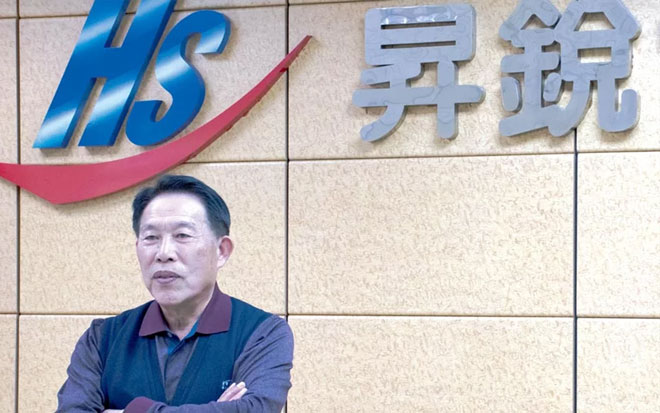New Spring for the Surveillance Industry Sees Hi Sharp Prep New Business

Surveillance market is getting better. HI SHARP is preparing to extend the market.
HI Sharp Chairman Jerry Yang became the first president of Taiwan Industry Association of Intelligent Security and Safety (TIAISS) at the end of 2019 and has been tireless in his efforts to upgrade Taiwan’s security and safety industry. “Chinese companies almost succeeded in completely marginalizing Taiwanese makers over the past decade or so,” said Yang. “Current international developments and issues with information security have created an opportunity for the security and safety industry to make a comeback. There is absolutely no doubt that Western OEM orders will flow back to Taiwan because it remains the most reliable in terms of production and R&D capability. We have been given a golden opportunity and we must seize it to stay in the game.”
Hi Sharp was founded in 1987 and specializes in the R&D, manufacture and sale of security surveillance systems. The company focused on the export market in the early years but shifted its focus to the domestic, Southeast Asia and Japanese markets many years ago. R&D also transitioned to industrial and autotronic applications so that automotive products now account up to 40% of revenues. Hi Sharp began developing for non-Hisilicon chipsets in 2017. De-sinicization was reportedly not a consideration at the time but in hindsight, it was a brilliant move that is now paying dividends.
The domestic system integration market is worth several tens of billions of dollars a year as well and represents a huge business opportunity. Hi Sharp has invested significant resources in system integration, including integration of video and access control, or engineering management systems for schools, hospitals and factories. Yang said: “We have the equipment and the software technology. We entered the system integration field in the second half of 2019 and the synergies should start emerging.” The ultimate goal of the system integration business is to package different modules into products for the export market. Yang believed that the system integration business can be expanded or consolidated as necessary. He will treat it as one of the drivers for business growth. At the same time, he felt that AIoT will be a product that everyone will require in the next three to five years. His team is now evaluating different platforms in preparation for the launch of a future new business.
The Hi Sharp team has used the pandemic as an opportunity to build up its capabilities since the start of last year. The development of more refined products and professional training for employees will all prepare the company for future battles. Despite the pandemic, Hi Sharp reported January revenues of NT$76.9 million so business is good even in the off-season. Stable growth is expected over the coming year.